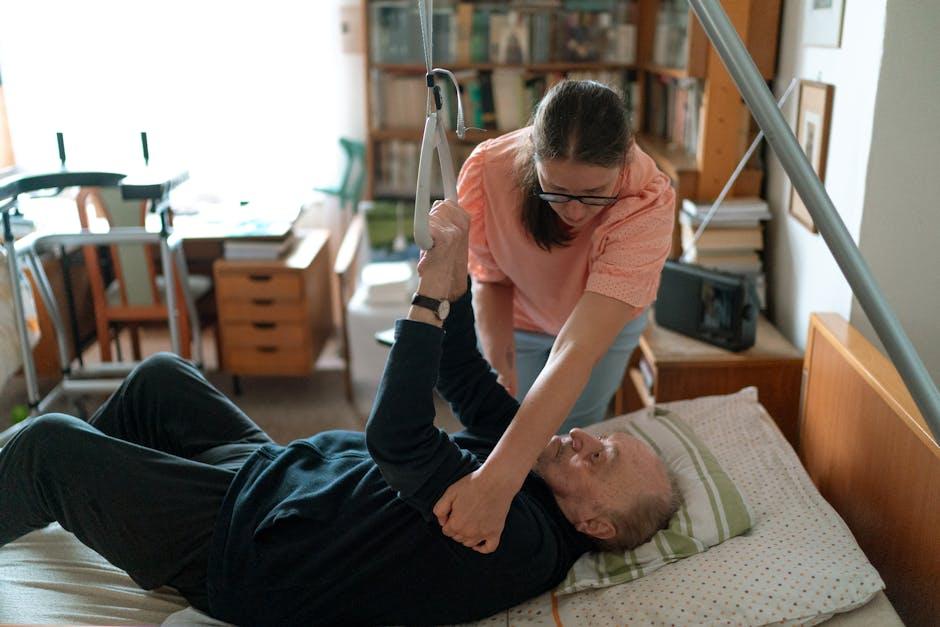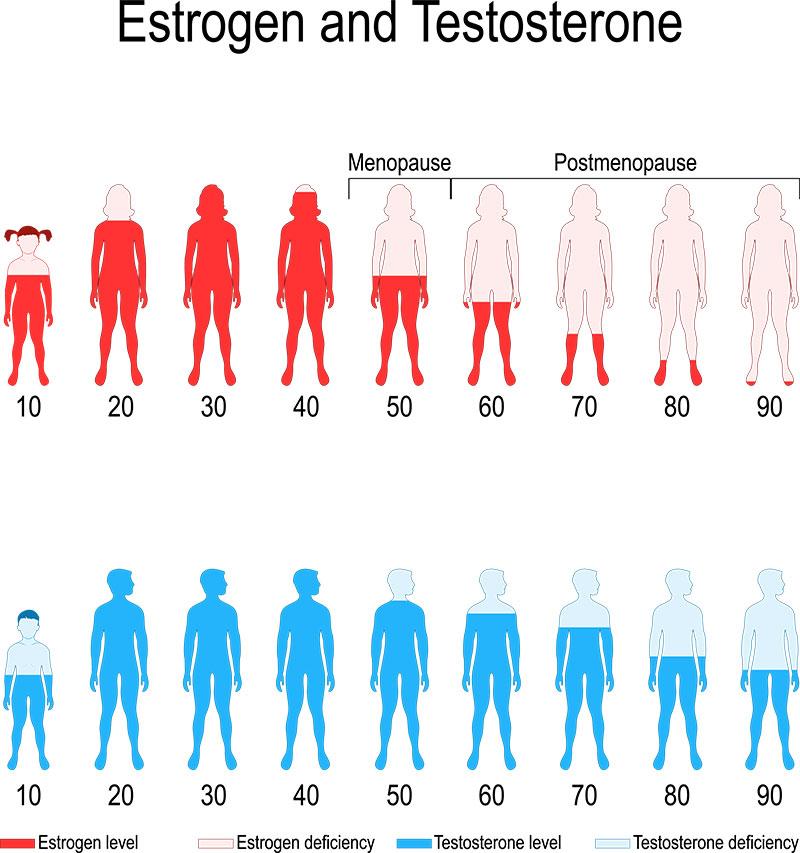In the tapestry of human aging, few threads are as intriguing and complex as the hormonal shifts that accompany the passage of time. Among these, testosterone, often heralded as the essence of vitality and vigor, plays a pivotal role in the male experience of aging. As men advance in years, the gradual decline of this potent hormone can prompt a cascade of changes, from dwindling energy levels to shifts in mood and muscle mass. In recent years, testosterone therapy has emerged as a beacon of hope for those seeking to reclaim their youthful zest. Yet, as with any medical intervention, it carries its own set of promises and pitfalls. This article embarks on a nuanced exploration of testosterone therapy for aging men, weighing its potential benefits against its risks, and offering a balanced perspective on whether this treatment is a boon or a bane in the quest for graceful aging.
Understanding Testosterone Therapy: A Double-Edged Sword
Testosterone therapy has gained popularity among aging men looking to reclaim vitality, yet it presents a nuanced landscape of benefits and potential pitfalls. On the upside, this treatment can enhance energy levels, improve muscle mass, and elevate mood. Men undergoing therapy often report a resurgence in libido and a more robust sense of well-being. Such positive changes can contribute to improved quality of life, making the therapy an attractive option for those experiencing age-related testosterone decline.
However, it’s crucial to weigh these advantages against possible drawbacks. Some men may experience increased risk of cardiovascular issues, including heart attacks and strokes. There’s also the potential for sleep apnea, acne, or prostate enlargement. Additionally, the therapy might cause mood swings or emotional fluctuations. It is essential for men considering this path to engage in thorough discussions with healthcare providers, evaluating both the short-term benefits and the long-term risks to make informed decisions tailored to their individual health profiles.

Navigating the Benefits: Enhanced Vitality and Muscle Mass
One of the most compelling advantages of testosterone therapy is its potential to invigorate vitality and bolster muscle mass in aging men. As testosterone levels naturally decline with age, many men experience a decrease in energy and a reduction in muscle strength and size. By introducing testosterone therapy, men may notice a revitalization of energy, which can manifest as increased endurance, enhanced physical performance, and a more robust engagement in daily activities.
- Increased Energy Levels: Many men report feeling more energetic, allowing them to participate more actively in both work and leisure activities.
- Enhanced Muscle Growth: Testosterone is crucial for muscle development, and therapy can help maintain or even increase muscle mass, which may be beneficial for those looking to stay fit and strong.
- Improved Physical Performance: With greater muscle mass and energy, physical performance in activities such as exercise and sports can see a marked improvement.
However, it’s important to approach these benefits with a balanced perspective. While the promise of enhanced vitality and muscle mass is alluring, individual responses to therapy can vary, and the potential for side effects should be considered. A personalized approach, guided by a healthcare professional, can help in navigating these benefits effectively.

Potential Pitfalls: Health Risks and Side Effects Explored
While testosterone therapy can offer significant benefits for aging men, it’s crucial to be aware of the potential health risks and side effects that may accompany it. Cardiovascular issues are a significant concern, as some studies suggest that testosterone therapy might increase the risk of heart attacks and strokes. Monitoring heart health becomes essential when considering this treatment option. Furthermore, there’s the potential for an increase in prostate-related complications, including the growth of existing prostate cancer, although this is still under scientific debate.
- Mood swings and emotional changes: Some men report increased irritability or anxiety.
- Sleep disturbances: Conditions like sleep apnea could potentially worsen.
- Skin conditions: Acne and oily skin are possible due to hormone fluctuations.
- Infertility: Testosterone therapy can reduce sperm production, impacting fertility.
It’s vital to have a thorough discussion with a healthcare provider to weigh these risks against the potential benefits, ensuring an informed decision that aligns with personal health goals and conditions.

Expert Recommendations: Making Informed Decisions for Longevity
As men age, declining testosterone levels can lead to various health concerns such as decreased energy, reduced muscle mass, and diminished libido. Testosterone therapy offers potential benefits for aging men, including:
- Increased muscle strength and mass
- Enhanced mood and mental clarity
- Improved bone density
- Elevated libido and sexual performance
However, it’s crucial to weigh these advantages against possible drawbacks. Potential cons of testosterone therapy include:
- Increased risk of cardiovascular issues
- Possible contribution to prostate health concerns
- Adverse effects on sleep patterns
- Skin reactions and other side effects
When considering testosterone therapy, it’s important to consult with a healthcare professional to evaluate personal health risks and benefits, ensuring a well-informed decision that aligns with individual longevity goals.








